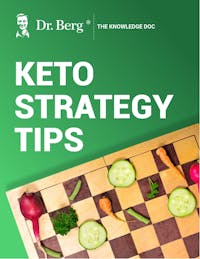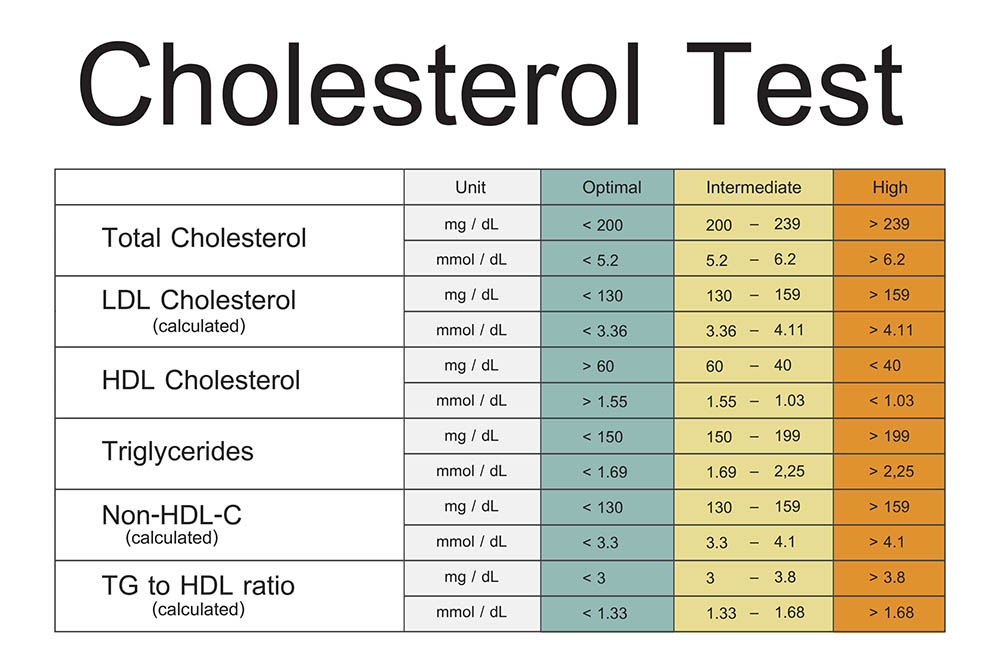How to Read and Understand Cholesterol Numbers

Keto Strategy Tips
Expert advice on maintaining a successful keto lifestyle
Learn simple strategies to overcome common challenges and stay on track
Stay motivated with tips and techniques to keep you focused on your keto journey
Practical cutout wallet guide for quick reference on keto-friendly choices and strategies

Keto Strategy Tips
Expert advice on maintaining a successful keto lifestyle
Learn simple strategies to overcome common challenges and stay on track
Stay motivated with tips and techniques to keep you focused on your keto journey
Practical cutout wallet guide for quick reference on keto-friendly choices and strategies

Keto Strategy Tips
Expert advice on maintaining a successful keto lifestyle
Learn simple strategies to overcome common challenges and stay on track
Stay motivated with tips and techniques to keep you focused on your keto journey
Practical cutout wallet guide for quick reference on keto-friendly choices and strategies

Keto Strategy Tips
Expert advice on maintaining a successful keto lifestyle
Learn simple strategies to overcome common challenges and stay on track
Stay motivated with tips and techniques to keep you focused on your keto journey
Practical cutout wallet guide for quick reference on keto-friendly choices and strategies

Keto Strategy Tips
Expert advice on maintaining a successful keto lifestyle
Learn simple strategies to overcome common challenges and stay on track
Stay motivated with tips and techniques to keep you focused on your keto journey
Practical cutout wallet guide for quick reference on keto-friendly choices and strategies

Keto Strategy Tips
Expert advice on maintaining a successful keto lifestyle
Learn simple strategies to overcome common challenges and stay on track
Stay motivated with tips and techniques to keep you focused on your keto journey
Practical cutout wallet guide for quick reference on keto-friendly choices and strategies

Keto Strategy Tips
Expert advice on maintaining a successful keto lifestyle
Learn simple strategies to overcome common challenges and stay on track
Stay motivated with tips and techniques to keep you focused on your keto journey
Practical cutout wallet guide for quick reference on keto-friendly choices and strategies

Keto Strategy Tips
Expert advice on maintaining a successful keto lifestyle
Learn simple strategies to overcome common challenges and stay on track
Stay motivated with tips and techniques to keep you focused on your keto journey
Practical cutout wallet guide for quick reference on keto-friendly choices and strategies

Keto Strategy Tips
Expert advice on maintaining a successful keto lifestyle
Learn simple strategies to overcome common challenges and stay on track
Stay motivated with tips and techniques to keep you focused on your keto journey
Practical cutout wallet guide for quick reference on keto-friendly choices and strategies

Keto Strategy Tips
Expert advice on maintaining a successful keto lifestyle
Learn simple strategies to overcome common challenges and stay on track
Stay motivated with tips and techniques to keep you focused on your keto journey
Practical cutout wallet guide for quick reference on keto-friendly choices and strategies

Keto Strategy Tips
Expert advice on maintaining a successful keto lifestyle
Learn simple strategies to overcome common challenges and stay on track
Stay motivated with tips and techniques to keep you focused on your keto journey
Practical cutout wallet guide for quick reference on keto-friendly choices and strategies

Keto Strategy Tips
Expert advice on maintaining a successful keto lifestyle
Learn simple strategies to overcome common challenges and stay on track
Stay motivated with tips and techniques to keep you focused on your keto journey
Practical cutout wallet guide for quick reference on keto-friendly choices and strategies

Keto Strategy Tips
Expert advice on maintaining a successful keto lifestyle
Learn simple strategies to overcome common challenges and stay on track
Stay motivated with tips and techniques to keep you focused on your keto journey
Practical cutout wallet guide for quick reference on keto-friendly choices and strategies

How to Read Your Body
Learn to recognize common symptoms and uncover their underlying health issues
Understand the signs of nutrient deficiencies to manage your health
Explore the four metabolic body types and the core factors that influence them
Interpret your body's signals from head to toe to identify potential health concerns

How to Read Your Body
Learn to recognize common symptoms and uncover their underlying health issues
Understand the signs of nutrient deficiencies to manage your health
Explore the four metabolic body types and the core factors that influence them
Interpret your body's signals from head to toe to identify potential health concerns

How to Read Your Body
Learn to recognize common symptoms and uncover their underlying health issues
Understand the signs of nutrient deficiencies to manage your health
Explore the four metabolic body types and the core factors that influence them
Interpret your body's signals from head to toe to identify potential health concerns

How to Read Your Body
Learn to recognize common symptoms and uncover their underlying health issues
Understand the signs of nutrient deficiencies to manage your health
Explore the four metabolic body types and the core factors that influence them
Interpret your body's signals from head to toe to identify potential health concerns

How to Read Your Body
Learn to recognize common symptoms and uncover their underlying health issues
Understand the signs of nutrient deficiencies to manage your health
Explore the four metabolic body types and the core factors that influence them
Interpret your body's signals from head to toe to identify potential health concerns

How to Read Your Body
Learn to recognize common symptoms and uncover their underlying health issues
Understand the signs of nutrient deficiencies to manage your health
Explore the four metabolic body types and the core factors that influence them
Interpret your body's signals from head to toe to identify potential health concerns

How to Read Your Body
Learn to recognize common symptoms and uncover their underlying health issues
Understand the signs of nutrient deficiencies to manage your health
Explore the four metabolic body types and the core factors that influence them
Interpret your body's signals from head to toe to identify potential health concerns

How to Read Your Body
Learn to recognize common symptoms and uncover their underlying health issues
Understand the signs of nutrient deficiencies to manage your health
Explore the four metabolic body types and the core factors that influence them
Interpret your body's signals from head to toe to identify potential health concerns

How to Read Your Body
Learn to recognize common symptoms and uncover their underlying health issues
Understand the signs of nutrient deficiencies to manage your health
Explore the four metabolic body types and the core factors that influence them
Interpret your body's signals from head to toe to identify potential health concerns

How to Read Your Body
Learn to recognize common symptoms and uncover their underlying health issues
Understand the signs of nutrient deficiencies to manage your health
Explore the four metabolic body types and the core factors that influence them
Interpret your body's signals from head to toe to identify potential health concerns

How to Read Your Body
Learn to recognize common symptoms and uncover their underlying health issues
Understand the signs of nutrient deficiencies to manage your health
Explore the four metabolic body types and the core factors that influence them
Interpret your body's signals from head to toe to identify potential health concerns

How to Read Your Body
Learn to recognize common symptoms and uncover their underlying health issues
Understand the signs of nutrient deficiencies to manage your health
Explore the four metabolic body types and the core factors that influence them
Interpret your body's signals from head to toe to identify potential health concerns

How to Read Your Body
Learn to recognize common symptoms and uncover their underlying health issues
Understand the signs of nutrient deficiencies to manage your health
Explore the four metabolic body types and the core factors that influence them
Interpret your body's signals from head to toe to identify potential health concerns
In all the time you’ve been getting cholesterol tests, has anyone taken the time to show you how to read your results so you can make an informed decision about treatment that doesn't involve significant lifestyle changes or prescription drugs because of your high levels of total cholesterol?
I’m guessing no one has, but I will.
In This Article:
Your Body Needs Cholesterol
Cholesterol is essential for your health and your life. Without it, you’d die.
Let’s take a look at the top 3 functions of cholesterol in your body:
#1 Cell membrane coating - Every one of the trillions of cells in your body is covered with a membrane containing cholesterol. Even the outside of your skin has a cholesterol layer to prevent your skin from getting irritated and inflamed.
#2 Hormone production - Your body needs cholesterol to make hormones; specifically stress hormones and others that have an anti-inflammatory effect on your body.
#3 Memory preservation - Cholesterol is involved with the brain activity responsible for memory. If your cholesterol level is too low, your memory can be affected. This is why one of the side effects of statin drugs, which lower your total cholesterol levels, is memory loss.
Cholesterol’s other important functions are:
To make vitamin D which helps you absorb calcium, among other things
To make bile, a vitally important fluid that helps you dissolve fats and absorb the nutrients from them
There’s No Such Thing As Different Kinds Of Cholesterol
What’s funny to me is how we refer to good and bad cholesterol. The good kind is HDL cholesterol (high-density lipoprotein); the bad kind is LDL cholesterol (low-density lipoprotein). I like to remember which one is considered good by saying the H stands for healthy.
The reason this is funny to me is because there’s really no such thing as two different types of cholesterol! There’s just one kind, and it’s carried through your blood plasma by HDL and LDL, which are truly transport vehicles of cholesterol rather than cholesterol itself.
You may wonder, why does cholesterol need to be transported?
Because it’s what’s called hydrophobic; that is, it doesn’t mix well with watery blood plasma. Lipoproteins are like little capsules that contain the cholesterol in order to move it safely within your body to where it needs to go.
How Your Body Tries To Maintain Balanced Cholesterol Levels
Let’s take a look at LDL cholesterol. Its purpose is to deliver cholesterol from your gut and liver to your intestinal tract, then into your blood, and finally to your tissues.
By contrast, HDL cholesterol takes excess cholesterol in your body and carries it back to your liver where it’s dismantled and recycled.
See how there’s an exchange of cholesterol going out of and then back into the liver? This is because your body seeks to maintain a balance of cholesterol in and out.
But what happens when it gets out of balance?
High LDL Cholesterol Is Like A Dashboard Warning Light
A doctor’s response to high levels of LDL is often to prescribe a statin drug. But really, high LDL is more like a warning light on your dashboard. It’s not the problem itself, but an indicator of an underlying issue.
Here’s why.
Normally, your LDL is fine if it’s below 130 mg/dL.
But in 2004 a group of 15 doctors decided to lower the “safe” level of LDL to 100 mg/dL. Practically overnight, eight million people were prescribed statins.
Which made me wonder if those 15 doctors had ties to the drug companies producing statins.
Unfortunately, they did.
The Better Way To Calculate Your Risk Of Heart Disease Using Your Test Results

Let’s take a look at some unbiased normal HDL cholesterol levels.
In a man’s body, HDL should be 40 mg/dL or greater. For women, the level is 47 mg/dL or greater.
I know this is a lot to take in but stick with me here.
You know your test also measures triglycerides, but what are they?
Triglycerides are blood fats, which have been converted from sugars. They are used to transport excess carbohydrates. Thus, if you have elevated triglycerides, I know for a fact you have too much sugar in your body.
A perfectly fine triglyceride level is 150 mg/dL or less.
Now, take these two numbers from your test result and plug them into the calculation for the ratio that I think is the best indicator of your risk for heart disease: triglycerides/HDL.
In other words, to calculate your ratio, divide your triglyceride result by your HDL result from your blood test. If it’s greater than 6, there’s a problem. But if it’s 2 or less, that’s good! Lower is better.
And there’s a very simple way to lower your triglycerides: eliminate carbohydrates and sugar from your diet.
That means, eliminate (or at least greatly reduce) bread, pasta, cookies, cakes, alcohol, and the like. You’ll be able to quickly lower your triglycerides into the normal range, thus decreasing your risk of heart disease.
There is such a thing as a genetic tendency to high cholesterol but it’s quite rare. If you do have it, even if your total cholesterol score was 350, studies show you’re not at risk for heart disease. This is one reason why going on statins can be a mistake.
I don’t use my patients’ total cholesterol score; basically, as long as it’s 350 or less, it’s irrelevant as long as the triglyceride/HDL ratio is low.
You Have The Power To Change Your Health
75% of the cholesterol in your body is made by your liver and your cells. Your liver makes 2,000 mg of cholesterol daily; the rest of your cells make 1,000 mg per day.
This means only 25% of the cholesterol in your body comes from diet.
And here’s the thing:
While people whose cholesterol results come back high are often put on statins right away and prescribed a low-fat diet, this doesn’t help.
In fact, it can make your situation worse.
Low fat diets are usually high in carbohydrates, which as I described can raise your triglycerides. Exactly what you don’t want!
So, they go on drugs, eat more carbs, and exercise to try to improve their cholesterol situation but they don’t do the one thing that would truly help: get rid of the sugars and carbs in their diet.
Now that you’ve got this information, you can confer with your doctor to make an informed decision for your treatment.
Are you ready to take charge of your health?

Up Next:
Previous blog
Is Kefir Keto-Friendly?Next blog
Sprouted Flax Seeds vs Flax SeedsTags

Popular
08/21/2024
40.4K views
05/22/2024
36.9K views
08/19/2024
214.8K views
03/18/2024
11/21/2022




